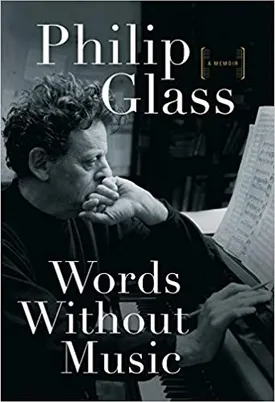Words Without Music: A Memoir by Philip Glass
Words Without Music: A Memoir by Philip Glass is the story of his life and his career as one of the most influential modern composers. Through his personal stories and reminiscences, Glass offers readers a unique look into the life of a trailblazing musician, revealing his creative process, influences, successes and struggles.
The book begins with a short history of Glass’s upbringing, in which he describes his family’s connection to music, the events and experiences of his early childhood, and his growing interest in the music of Mozart, Bach and others. From there, Glass explains how he eventually became a student at the University of Chicago, studying composition, and how he infused his classical training with elements of world music, jazz, and rock.
He also recounts his travels to India, where he was exposed to the culture of sitar and Indian classical music, and to Africa, which had a profound impact on his work. As he delves deeper into his story, Glass reminisces about his travels and adventures, from the concerts he attended and the people he met to his struggles and successes as he forged his own path.
He goes on to share the story of his early days as a composer, working with theater and dance companies in New York and writing operas such as Einstein on the Beach and Satyagraha. He illustrates how these experiences, and the collaborations he forged, shaped his compositional style, as well as how he reacted to the audience’s reactions to his music.
Glass further recounts his move to Hollywood, where he wrote the score for The Hours and collaborated with renowned director Martin Scorsese on the Kundun soundtrack. He also muses on the story of the Philip Glass Ensemble, which he formed in the mid-1970s and which continues to perform today.
Finally, Words Without Music delves into Glass’s creative process and the philosophy he brings to his work. He reflects on his career so far and provides a look into what he has learned about life, creativity, and his own growth as a composer.
Throughout the book, Glass shares intimate stories and experiences from his life that speak to his musical influences, his artistic collaborations, and his belief in pushing boundaries. In the end, he provides readers with an inspiring and rewarding journey through his life and music. Words Without Music is an essential read for anyone interested in Glass and his music, as well as those looking for insight into the creative process of a modern master.

